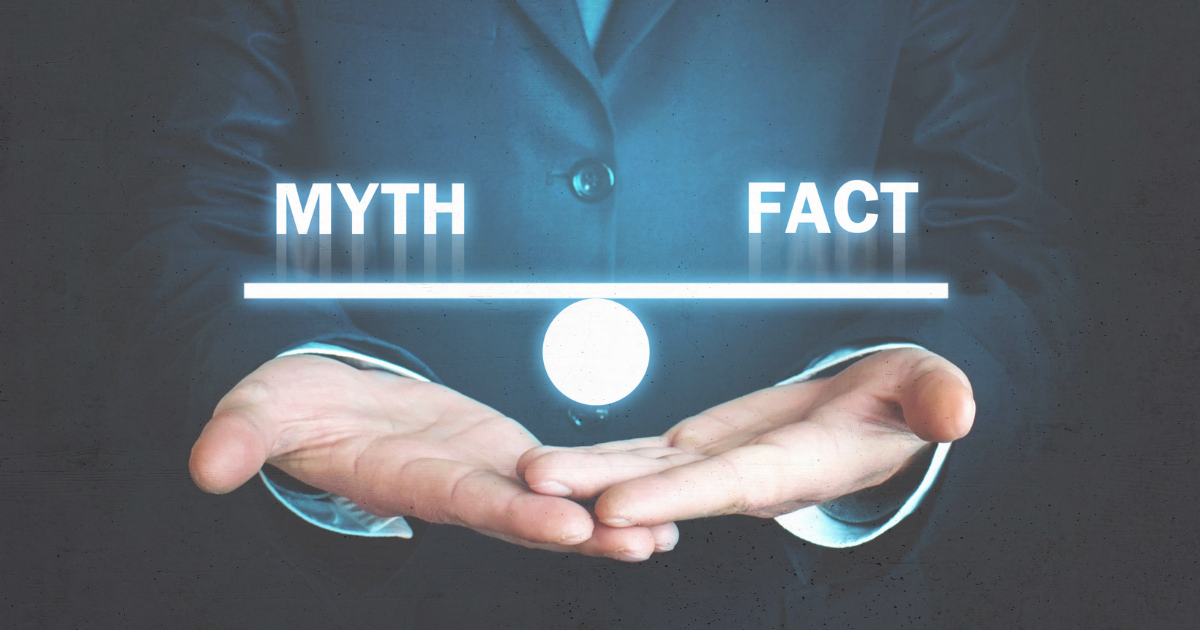
8 COMMON MENTAL HEALTH MYTHS DEBUNKED: SEPARATING FACT FROM FICTION
- November 6, 2023
- Scientific Insights
- 0 Comments
Mental health, despite being an integral part of overall health, is often shrouded in misconceptions and stigma. As we continue to make strides in understanding mental health issues, it’s crucial to address and correct the widespread myths that persist. This comprehensive article aims to debunk common mental health myths and provide a clear perspective on these important issues.
Table of Contents
UNDERSTANDING MENTAL HEALTH
What is Mental Health?
Before diving into the myths, let’s define mental health. Mental health encompasses our emotional, psychological, and social well-being. It affects how we think, feel, and act and contributes to our decision-making process, how we handle stress, and how we relate to others. A state of good mental health isn’t just the absence of mental health problems; it is also the presence of positive characteristics.
ADDRESSING THE STIGMA
The Stigma Around Mental Health
Stigma is one of the most significant barriers to mental health care. It manifests through a lack of understanding, misinformation, and negative attitudes, which can lead to discrimination. Debunking myths is a step towards reducing this stigma, encouraging open conversations, and promoting a more informed and supportive society.
MYTH 1: MENTAL HEALTH PROBLEMS ARE UNCOMMON
The Prevalence of Mental Health Issues
Contrary to popular belief, mental health issues are quite common. According to the World Health Organization (WHO), one in four people will be affected by mental or neurological disorders at some point in their lives. Millions are currently living with conditions like depression, anxiety, bipolar disorder, and schizophrenia.
MYTH 2: MENTAL HEALTH PROBLEMS ARE A SIGN OF WEAKNESS
The Reality of Mental Strength and Illness
The misconception that mental health issues are a sign of personal weakness is damaging and false. Mental health disorders result from a complex interplay of genetic, biological, environmental, and psychological factors. They are not the result of personal failure or lack of willpower.
MYTH 3: PEOPLE WITH MENTAL HEALTH ISSUES CAN’T WORK
Mental Health and Employment
Many people with mental health conditions are active, productive members of the workforce. With the right treatment and support, individuals with mental health issues can perform as well as any other employee. Employers can also play a role by creating supportive work environments that acknowledge the importance of mental health.
MYTH 4: CHILDREN DON’T EXPERIENCE MENTAL HEALTH PROBLEMS
Mental Health Across Ages
It’s a common myth that children do not experience mental health problems. However, mental health issues can affect people of all ages, and some can begin manifesting in childhood or adolescence. Early intervention is key to helping young people develop healthy coping mechanisms and management strategies.
MYTH 5: MENTAL HEALTH PROBLEMS ARE PERMANENT
The Potential for Recovery
Mental health issues are not necessarily lifelong conditions. With proper care, including therapy, medication, and support systems, many people recover fully or learn to manage their needs effectively. Recovery, however, can mean different things to different people and doesn’t always mean the complete absence of symptoms.

MYTH 6: THERAPY AND COUNSELING ARE ONLY FOR “CRAZY” PEOPLE
Therapy as a Tool for All
Therapy is a tool for personal development and dealing with life’s challenges; it’s not exclusive to any one type of person or severity of mental health issues. Everyone can benefit from therapy, whether they’re dealing with a mental health condition, life stressors, or need someone to talk to.
MYTH 7: MENTAL HEALTH PROBLEMS ARE PURELY PSYCHOLOGICAL
The Biological Factors in Mental Health
Mental health issues are not just “all in your head.” There are biological and physiological aspects to mental health disorders, including changes in brain chemistry, hormone imbalances, and genetic factors. Acknowledging the biological basis of these conditions is essential for understanding and treating them.
MYTH 8: YOU CAN’T HELP SOMEONE WITH A MENTAL HEALTH PROBLEM
Being an Ally in Mental Health
While you may not be a professional, you can be an ally to someone struggling with their mental health. Listening, offering support, and providing information on where to seek professional help are powerful ways to assist someone.
CONCLUSION
Moving Forward in Mental Health Understanding
Debunking myths about mental health is crucial in building a more informed society that can offer better support to those in need. By addressing these misconceptions, we can create a healthier dialogue around mental health and encourage those struggling to seek help without fear of judgment.
KEY TAKEAWAYS
- Mental health issues are common and affect millions worldwide.
- Mental health problems are not a sign of weakness or personal failure.
- People with mental health issues can be successful and productive in the workforce.
- Children and adolescents can experience mental health problems.
- Recovery from mental health conditions is possible.
- Therapy is a beneficial resource for everyone.
- Mental health problems have biological components and are not just psychological.
- Everyone can be an ally to someone facing mental health challenges.
As we continue challenging and changing our perceptions of mental health, we pave the way for more compassionate and effective care. Let’s commit to ongoing education and dispelling myths, ensuring that mental health is treated with the same urgency and respect as physical health.






